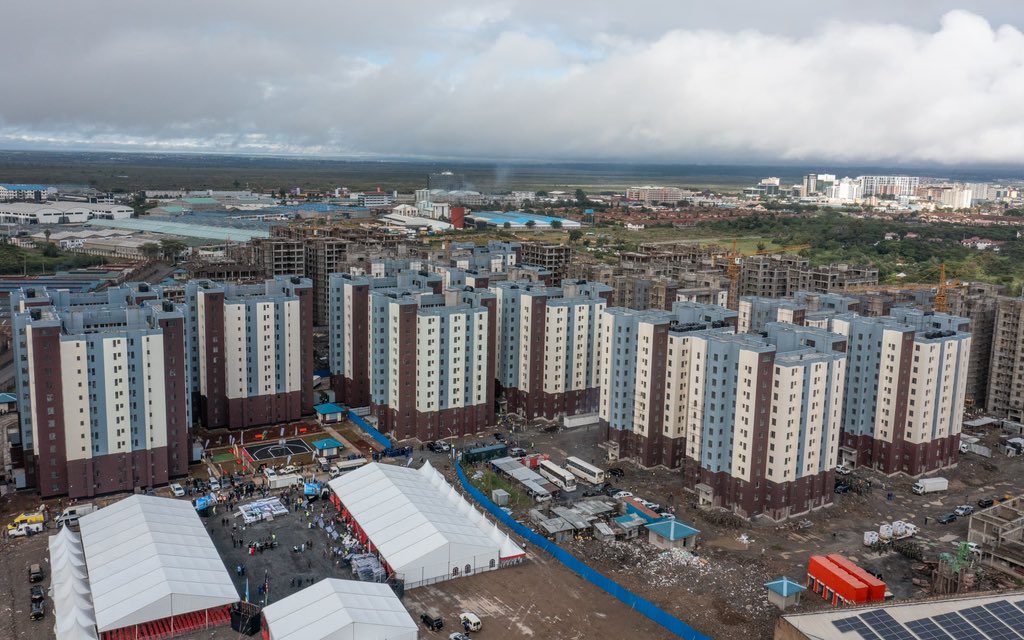NAIROBI – Three months after President William Ruto launched the much-touted affordable housing project in Mukuru slums, residents who moved into the new apartments are raising serious concerns about the living conditions and unfulfilled promises.
The ambitious housing scheme, which was presented as a flagship project to transform the lives of slum dwellers, is now facing mounting criticism from the very people it was meant to help.
The complaints range from basic infrastructure failures to security concerns that threaten to recreate the problems residents sought to escape.
Wainaina Mwangi, a 65-year-old tenant living in Block A of the Boma Yangu Estate, represents the frustration of many new residents.
His ordeal began when officials used his designated house as a showcase during President Ruto’s launch ceremony.
Since that day, he has been unable to occupy the unit he paid for, with site officials repeatedly promising to consult on returning his home while taking him in circles.
The infrastructure challenges are equally troubling. Residents in the 11-floor complex have endured two weeks without functioning lifts, forcing elderly residents and families with young children to climb multiple flights of stairs daily.
An eighth-floor resident expressed her disappointment, explaining that they were promised fully furnished homes but arrived to find empty units lacking the basic furniture advertised in the initial plans.
The missing amenities have created an unexpected financial burden for families who invested their savings expecting to find beds, three-seater sofas, mattresses, and coffee tables as originally promised.
This has left some residents unable to properly move in despite having made payments, with furniture costs now eating into their limited budgets.
Water quality has emerged as another critical issue plaguing the estate.
Residents describe the borehole water as excessively salty, making it unsuitable for drinking or cooking.
While the development has access to both borehole water and supply from Nairobi City Water and Sewerage Company, the merger of these sources has compromised water quality, forcing residents to purchase drinking water and adding to their monthly expenses.
Perhaps most concerning for families with children is the reported sale of alcohol and bhang within the residential units.
A mother of two voiced her alarm at this development, warning that such activities could lead to the same lawlessness they sought to escape by leaving the slums.
She has called on the government to intervene before these illegal activities undermine the project’s objective of providing a safe, family-friendly environment.
The situation has created a sense of betrayal among residents who viewed the affordable housing project as their pathway to a better life. Many had high expectations based on the government’s promises during the launch, and the reality has fallen short of these commitments.
The complaints from Mukuru residents highlight broader challenges facing Kenya’s affordable housing initiative, one of President Ruto’s key campaign promises.
The project was designed to address the housing deficit while providing decent living conditions for low-income families, but the implementation appears to be struggling with basic service delivery.
As the government pushes forward with similar projects across the country, the Mukuru experience serves as a critical test case.
Residents are calling for immediate government intervention to address the furniture shortage, repair the faulty lifts, improve water quality, and crack down on illegal activities within the estate.
The success or failure of addressing these concerns will likely influence public perception of the broader affordable housing agenda and determine whether future beneficiaries will trust government promises about improved living conditions.


